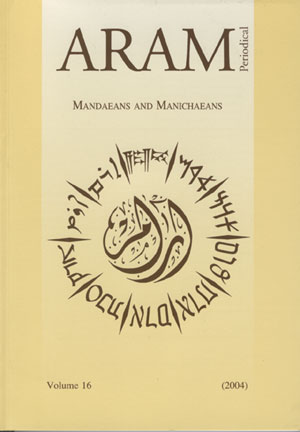 previous article in this issue previous article in this issue | next article in this issue  |

|
Document Details : Title: Dating the Dendara Zodiac Subtitle: Egypt's Famous Greco-Roman 'Zodiac' Author(s): PARK, Rosalind , ECCLES, Bernard Journal: ARAM Periodical Volume: 24 Date: 2012 Pages: 175-192 DOI: 10.2143/ARAM.24.0.3009273 Abstract : The most popular visitor attraction in the Egyptian Antiquities department in the Louvre is the sandstone ceiling with bas-relief of a sky-map from Dendara temple. The 2.5 m x 2.5 m artefact is dated to the 1st century BC by Neugebauer and Parker (1969) who also claimed, albeit with sketchy discussion on the matter, that the planets shown are merely placements in their zodiacal sign of astrological ‘exaltation’. Upon our investigation, this postulation is not fully supported. Aubourg (1995) who does not comment on the assumption of ‘exaltations’, interprets two particular symbols as depictions of a solar and lunar eclipse in the years 52 and 51 BC, and hypothesises that the planets are at their last stationary point prior to his deduced date for the summer of 51 BC. However these portrayals are otherwise unprecedented in sacred art. Therefore such conclusions seem dubious, both in historic context and to the received wisdom of the nature of celestial ideology in which Egyptian temple priests were normally steeped, and who incidentally, were the only ones with access to the roof-top sanctuary chamber where the zodiac ceiling was secreted. This paper will attempt to unravel more intrinsic, political and practical meaning behind the commissioning of the Dendara zodiac. A re-appraisal of the content incidentally shows astronomical viability for the Sun, Moon and five planets, indicating a date late in the reign of the then Pharaoh of Egypt, Caesar Augustus. And this is suggestive of a more than likely horoscope present amongst the constellations. In his 2nd century AD biography of Augustus, Suetonius tells how the youthful Octavian had consulted with a Greek astrologer Theogenes and been told of his powerful destiny. This serves to remind us how astrology, and particularly, horoscopes of destiny such as the Dendara zodiac might turn out to be, had taken hold throughout the Roman Empire, in which Egypt was a major player. |
